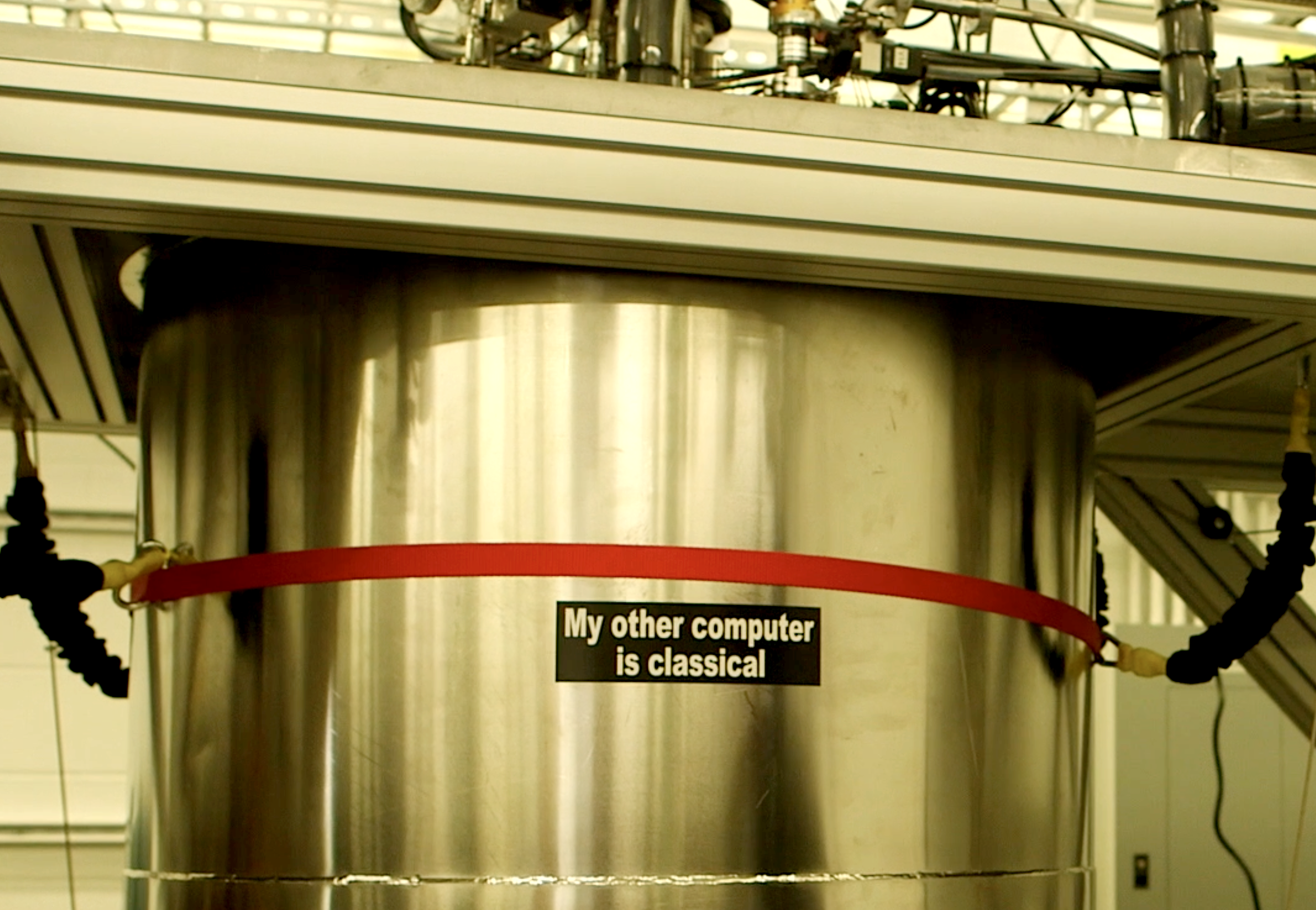Google’s dilution refrigerator used to cool quantum processors may be a part of the first quantum computer that can perform a calculation impossible on classical computers.
As one of the most hyped emerging technologies, there are a lot of misconceptions about quantum computing and its functionality. It is often thought that practical applications of quantum computers will only exist far into the future and that when this happens, they will instantly supersede existing classical computers owing to their superior computational power. Some speculate that this technology will be all-powerful, guaranteed to help cure cancer, reverse climate change, and revolutionise fields as diverse as machine learning, chemistry, economics, and business. Many think that quantum computers are simply faster versions of classical computers.
The reality is quite different
It is true that quantum computers do not yet have a wide range of practical applications. Researchers are still struggling with the longstanding problem of maintaining superposition and entanglement long enough to perform useful calculations. However, they are already being used in tandem with classical computers to solve real-world business problems – an approach known as “hybrid computation.”
Quantum computers are currently only suitable for solving problems where their approach of harnessing the laws of quantum physics is superior to the approach of classical computers. Indeed, classical computers are still faster or better in many use cases. In this hybrid workflow, a problem is deconstructed into quantum and classical components, solved by the relevant processors, with the solutions then recombined to provide possible answers. Classical computers are also necessary to interface with the quantum technology, handling user data, communicating with servers, and displaying results.
The availability of quantum computing through the cloud has also eliminated the need for users to purchase prohibitively expensive and high-maintenance machinery. Although the cost of access to quantum computing has been reduced, renting quantum computing time is still expensive enough that clients are usually industrial or research cases.
This has encouraged corporations to experiment with how quantum computing might add value to their business. For instance, car manufacturer Volkswagen has partnered with cloud hybrid computing provider D-Wave Systems to reduce costs and increase efficiency in their operations. Volkswagen has used hybrid computing to price vehicles according to the need for profits and customer demand as well as to create a more efficient schedule for cars going through their assembly line paint shop. Another example is drug company Menten AI, which has used D-Wave’s services to design a protein for a new type of COVID-19 vaccine. These cases illustrate that quantum computing, albeit in hybrid form, is already creating value for businesses.
Nevertheless, while these developments are exciting it is important to recognise that quantum computing has its limitations. Experts have raised concerns over whether these Near Intermediate Scale Quantum (NISQ) computers, which contain a relatively small number of qubits, can really perform all the tasks which quantum computing companies like D-Wave claim. Indeed, quantum computing companies might be incentivised to hype their own products to attract customers, investors, and government funding.
There is even controversy about whether D-Wave’s hybrid computers, which rely on a technique called quantum annealing and can only solve certain kinds of problems, should be categorised alongside more typical, general-purpose gate-based quantum computers. Conceptually, gate-based machines operate somewhat more like classical computers where operations are performed by configuring qubits in different ways. This architecture allows them to tackle many kinds of problems. Meanwhile, quantum annealers can only solve problems that can be framed as energy minimizations, finding low energy states which equate to optimal or near-optimal solutions. However, the advantage of quantum annealers is that they can be more easily scaled up to include more qubits and therefore more computing power. In any case, quantum annealers should not be advertised as a catch-all solution for businesses looking to apply quantum technology to their operations.
Furthermore, what constitutes value-creation by, and practical application of quantum computing technology can be subjective. For example, D-Wave touts its hybrid computing technology as being able to provide a competitive advantage for customers in the financial services industry. They point to their partnership with Accenture in which they developed quantum algorithms to find opportunities for currency arbitrage, credit scoring, and optimising trading. However, the actual quantum hardware which these algorithms would run on does not actually exist yet. These companies argue that this project was critical in “enabling quantum readiness for future hardware.” Yet without real-world trials, it is hard to say with certainty whether these algorithms, or quantum technology in general, can concretely make an impact on finance or any other industries that are supposedly going to be revolutionised by this technology.
There is a dilemma that emerges here. On one hand, the quantum computing industry has unknown potential that can only be discovered through research and experimentation made possible by government funding and private investment. To justify this support, companies and scientists must express confidence that quantum computing is (or will be) useful. On the other hand, quantum hype can mislead, even deceive, people into thinking that quantum computing will be a panacea for all the world’s problems. We must be conscious of this tension between the demands of science, for which being honest about the limitations of experiments is essential for its advancement, and the demands of commerce. It will be a difficult act for the industry to balance.







Leave a Reply